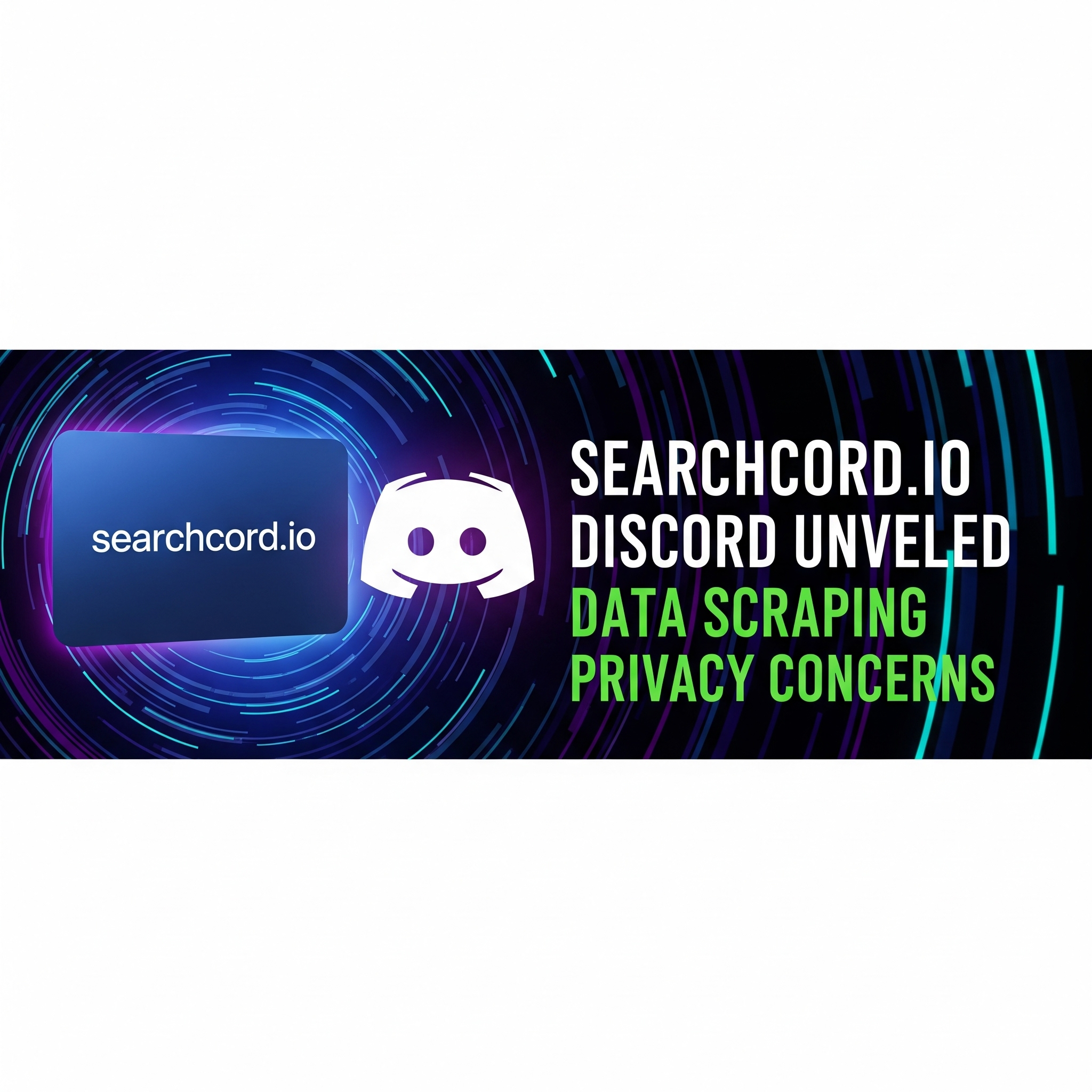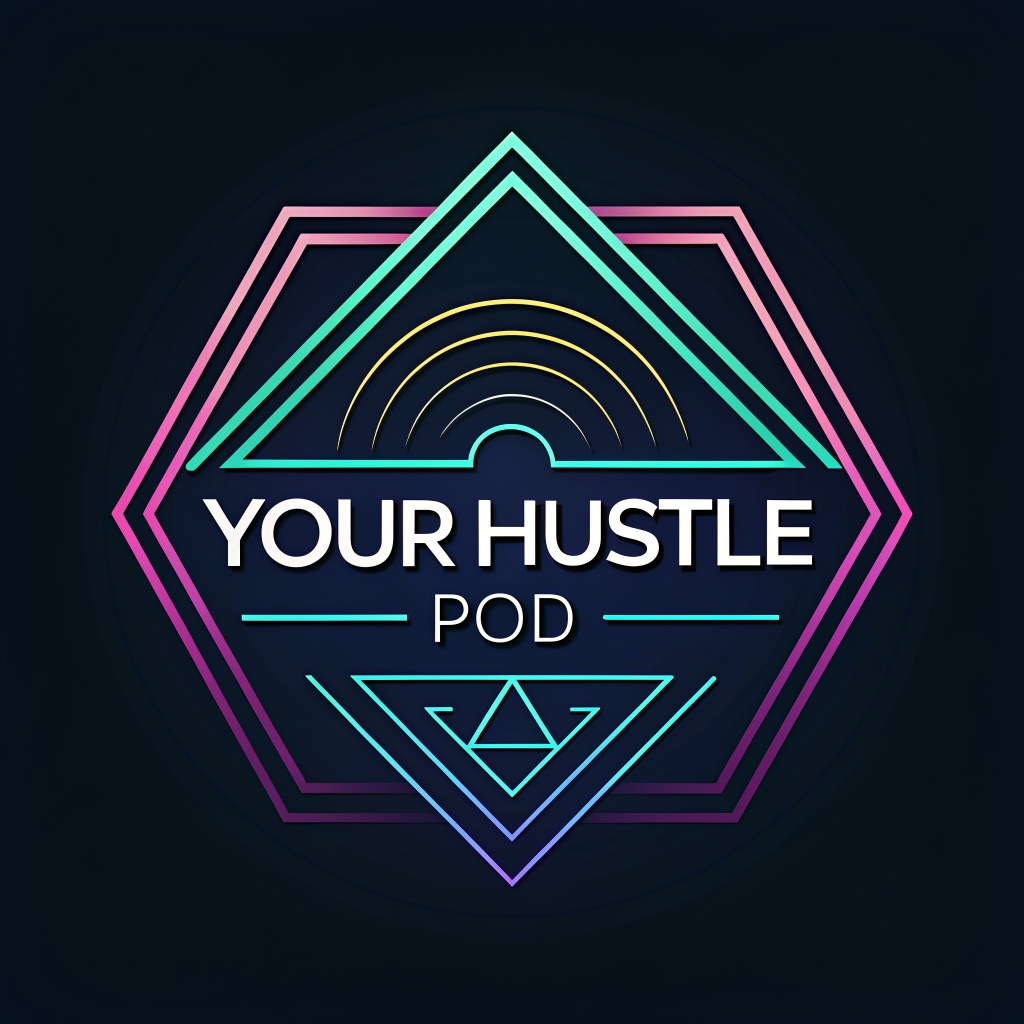
Privacy Under Fire: The Alarming Rise and Fall of Searchcord.io and the "Discord Unveiled" Dataset
In a stark reminder of the ever-present tension between data accessibility and personal privacy online, the digital landscape has been shaken by the recent emergence and subsequent shutdown of Searchcord.io, a website that indexed and made searchable billions of Discord messages. This incident, occurring concurrently with the release of a massive research dataset dubbed "Discord Unveiled," has ignited a fierce debate about the ethical implications of data scraping and the true meaning of "public" conversations on social platforms.
What Was Searchcord.io? A Digital Panopticon?
Searchcord.io surfaced around mid-May 2025, quickly drawing ire for its audacious mission: to provide a "free, privacy-preserving, archive of public Discord servers." While the creator claimed noble intentions of helping users find information within Discord's often-siloed communities, the reality was far more concerning. The website reportedly indexed an astonishing 63 billion messages across 90,000 Discord servers.
The critical flaw in Searchcord's "privacy-preserving" claim was its apparent failure to properly anonymize user data. Critics quickly pointed out that the platform allowed searches that could reveal usernames and full message content, even from public servers, effectively creating a searchable database of years of personal conversations. This raised immediate red flags for doxing, targeted harassment, and the potential for malicious actors to exploit this readily available information.
Furthermore, the opt-out mechanism offered by Searchcord was widely criticized as insufficient and difficult to use. Many users reported that even after attempting to opt out, their messages remained visible or were merely "redacted" in a way that still indicated their presence in the archive. The burden of removing one's data from a system they never consented to join was a major point of contention.
The "Discord Unveiled" Connection: Academic Research or Privacy Breach?
Adding another layer to the controversy, a separate project by Brazilian researchers, titled "Discord Unveiled: A Comprehensive Dataset of Public Communication (2015-2024)," emerged around the same time. This academic endeavor, published on platforms like Hugging Face and arXiv, boasts an equally staggering scale: over 2 billion messages from 4.74 million users across 3,167 public Discord servers, spanning Discord's entire operational history from 2015 to 2024.
While the researchers claim to have adhered to ethical guidelines and employed anonymization techniques, the sheer volume and depth of this publicly available dataset have triggered similar privacy anxieties. Even with attempts at anonymization, the raw content of messages, including deeply personal or sensitive conversations, remains accessible. The stated purpose of this dataset – for studying mental health, politics, or training bots – raises further questions about the potential for repurposing this data in ways individual users never anticipated.
Where Did It All Begin? The Precedent and the Policy Breach
The roots of this incident lie in the very nature of "public" online spaces and the ease with which data can be scraped. While older, less prominent Discord archiving projects may have existed, the recent surge in public awareness around Searchcord.io and "Discord Unveiled" highlights a growing concern about the long-term persistence and accessibility of digital conversations.
Crucially, both Searchcord.io and the "Discord Unveiled" dataset directly contradict Discord's own developer policy, which explicitly forbids scraping or large-scale message collection. This isn't the first time Discord has faced such a challenge; in 2024, a similar service called "Spy.pet" was actively shut down by the platform for violating its terms. The perceived difference in Discord's response to the current situation has also drawn criticism, with some arguing that the platform has been less proactive in enforcing its policies.
The Broader Implications: Redefining "Public" and the Need for Digital Literacy
The Searchcord and "Discord Unveiled" incidents serve as a stark wake-up call, forcing a critical re-evaluation of what "public" truly means in the digital age. For many Discord users, especially younger individuals, a public server may feel like a private community, a space for casual conversation and self-expression, not a permanent, searchable archive.
The consequences of such widespread data collection are far-reaching:
- Erosion of Privacy: Users lose control over their past conversations, leading to anxieties about doxing, harassment, and the potential for their words to be taken out of context.
- Data Repurposing: The availability of such massive datasets opens doors for AI training, behavioral analysis, and other applications without user consent or knowledge.
- Lack of Digital Literacy: Many users are simply unaware of the technical mechanisms that allow for large-scale data scraping, or the implications of posting in "public" spaces.
As of May 23, 2025, Searchcord.io is reportedly down, displaying a message that a "research article is in the works." While this offers a temporary reprieve, the underlying issue of widespread data scraping and the ethical dilemmas it presents remain. This incident underscores the urgent need for:
- Stronger platform enforcement: Social media platforms must rigorously uphold their terms of service against unauthorized data scraping.
- Greater transparency: Users need clear and concise information about how their data is collected, stored, and used, even in "public" settings.
- Enhanced digital literacy: Education on data privacy, online consent, and the permanence of digital footprints is crucial for all users, particularly younger generations navigating increasingly complex online environments.
The Searchcord saga is a pivotal moment, demanding a collective effort from platforms, policymakers, and users alike to redefine the boundaries of privacy in our interconnected digital world.
Timeline of Events:
- 2015: Discord launches.
- Late 2023: "Spy.pet," a website harvesting Discord user data, gains notoriety.
- Mid-2024: Discord takes action to shut down "Spy.pet" for violating its terms of service.
- Late 2024 - Early 2025: Brazilian researchers conduct data collection for the "Discord Unveiled" dataset (covering 2015-2024 messages).
- February 2025: The "Discord Unveiled: A Comprehensive Dataset of Public Communication (2015-2024)" research paper is published on arXiv, and the dataset is made available on platforms like Hugging Face.
- Mid-May 2025: Searchcord.io emerges, indexing billions of Discord messages and drawing significant public attention and backlash. Simultaneously, awareness of the "Discord Unveiled" dataset also increases.
- May 23, 2025: Searchcord.io is reported to be offline, displaying a message about the project's status and an upcoming research article.
Resources and Further Reading:
- "Discord Unveiled" Research Paper on arXiv:
- Discord Unveiled: A Comprehensive Dataset of Public Communication (2015-2024)
- News and Analysis of the Searchcord Incident:
- "Researchers Scrape 2 Billion Discord Messages and Publish Them Online" - 404 Media (May 21, 2025)
- "Show HN: A free, privacy preserving, archive of public Discord servers" - Hacker News (Discussion around Searchcord's launch, May 2025)
- Information on the Spy.pet Incident (Precedent):
- "Discord Takes Down 'Spy.pet' Website that Harvested Data from Hundreds of Millions of Users" - Bitdefender
- Discord's Developer Policy on Scraping: While a direct link to the specific policy on scraping might be embedded within a broader developer terms document, the core message is consistent across their guidelines. You can often find this within their official developer documentation.
- Discord Developer Policy - Handle Data with Care (Specifically section "You may not mine or scrape any data, content, or information available on or through Discord services")
- Discord Unveiled Dataset on Hugging Face:
